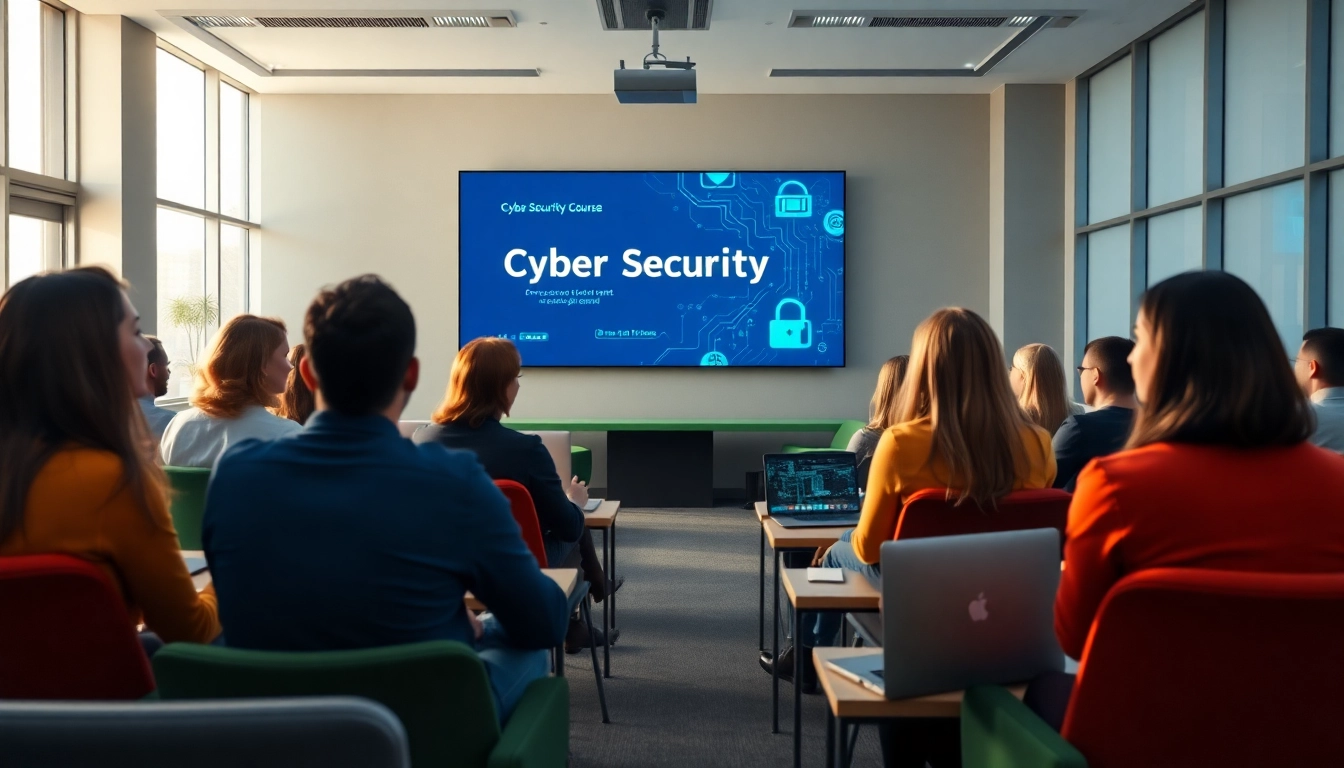1. Understanding Cyber Security: Fundamental Concepts
1.1 What is Cyber Security?
Cyber security is a discipline that encompasses a broad range of measures aimed at protecting computer systems, networks, and sensitive data from unauthorized access, theft, damage, or disruptions. It involves implementing various protocols and technologies to safeguard information integrity, confidentiality, and availability. The increasing reliance on digital platforms has made cyber security a critical aspect of both individual and organizational operations.
1.2 Importance of Cyber Security Courses
In light of the rising frequency and sophistication of cyber attacks, the importance of cyber security courses has never been more pronounced. These courses equip individuals with the knowledge and skills necessary to combat cyber threats effectively. Whether you are a beginner interested in entering the field or a seasoned professional aiming to update your knowledge, training in cyber security can provide the essential tools to navigate this complex landscape successfully.
1.3 Key Threats in the Cyber Landscape
The cyber landscape is fraught with various threats, each with potential consequences that can undermine the security of data and networks. Common threats include:
- Malware: This refers to malicious software designed to disrupt, damage, or gain unauthorized access to computer systems.
- Phishing: A fraudulent attempt to obtain sensitive information by disguising as a trustworthy entity in electronic communications.
- Ransomware: A form of malware that encrypts data and demands a ransom for its release.
- Denial of Service (DoS) Attacks: Attempts to make a service unavailable by overwhelming the system with traffic.
2. Types of Cyber Security Courses Available
2.1 Online vs. In-Person Learning
When it comes to learning cyber security, one of the primary considerations is choosing between online and in-person courses. Online courses offer flexibility and accessibility, allowing learners to study at their own pace and access a wealth of resources remotely. In contrast, in-person courses provide interactive learning experiences where you can engage directly with instructors and peers. Ultimately, the choice depends on individual learning preferences and circumstances.
2.2 Certification Programs: What to Expect
Certification programs in cyber security are designed to validate an individual’s expertise and understanding of various critical areas within the field. Popular certifications include CompTIA Security+, Certified Information Systems Security Professional (CISSP), and Certified Ethical Hacker (CEH). These credentials typically require candidates to pass an examination that tests their knowledge across essential topics, such as network security, risk management, and incident response.
2.3 Specialized Cyber Security Courses for Different Sectors
Cyber security is not a one-size-fits-all field; therefore, specialized courses tailored to different sectors exist. For instance, courses for healthcare professionals focus on compliance with regulations like HIPAA, while those aimed at financial services tackle issues of data privacy and fraud prevention. Understanding the specific needs of various industries is crucial in choosing the right educational path.
3. Selecting the Right Cyber Security Course for You
3.1 Assessing Your Current Skill Level
Before enrolling in a cyber security course, it’s essential to conduct a self-assessment of your current skill level. Beginners may need foundational courses, while seasoned professionals may seek advanced topics like penetration testing or threat intelligence. Clearly identifying your starting point helps guide your learning path and ensures that the chosen program matches your needs.
3.2 Evaluating Course Content and Structure
When considering a particular course, it’s crucial to evaluate its content and structure carefully. Look for robust syllabi that cover necessary topics comprehensively, such as network architecture, security policies, and ethical hacking methods. An organized course structure, with modules building progressively in complexity, can enhance the learning experience.
3.3 Considering Instructors and Their Expertise
The expertise of instructors is a vital aspect of any learning program. Educators with significant industry experience can provide fresh insights into real-world applications of theoretical concepts. Research the qualifications of potential instructors, including their professional experience and influence in the cyber security community, to assess what you will gain from their teaching.
4. Practical Applications of Cyber Security Knowledge
4.1 Hands-On Labs and Simulations
Practical, hands-on experience is indispensable for mastering cyber security skills. Many courses now incorporate lab environments and simulations where learners can practice deploying security measures and conducting incident response. Engaging in such controlled settings allows learners to test their knowledge in real-time situations without the risk of damaging actual systems.
4.2 Real-World Case Studies in Cyber Security
Analyzing real-world case studies enriches the learning experience by providing context to theoretical concepts. Reviewing high-profile security breaches or successful defenses allows learners to understand common vulnerabilities and effective countermeasures. Many programs include case studies as part of their curriculum, aiding students in drawing valuable lessons from past incidents.
4.3 Building a Strong Cyber Security Portfolio
A well-structured portfolio can be crucial when seeking employment in cyber security. It should showcase practical projects, research papers, and relevant certifications. Engaging in internships or contributing to open-source security projects can also offer substantial additions to your portfolio, making you a more attractive candidate in the job market.
5. Evolving in the Cyber Security Field
5.1 Keeping Up with Current Trends and Technologies
Cyber security is an ever-evolving field, characterized by rapid technological advancements and shifting threat landscapes. Continuous professional development is essential to keep up with the latest trends, such as AI and machine learning applications in security, zero trust architectures, and the growing importance of cloud security. Regularly attending workshops, webinars, and industry conferences can facilitate ongoing education.
5.2 Networking and Community Involvement
Networking is a critical component of career development in cyber security. Engaging with professional communities can yield access to job opportunities, mentorship, and collaborative projects. Consider joining local cyber security groups, forums, or online communities where you can share insights and learn from fellow practitioners in the field.
5.3 Continuous Education and Advanced Certifications
As the cyber security landscape evolves, so too must the qualifications of professionals within it. Continuous education and pursuing advanced certifications allow practitioners to stay competitive. Programs that focus on emerging technologies or leadership in security roles offer routes to enhancing your expertise and possibly transitioning into higher-level positions.



